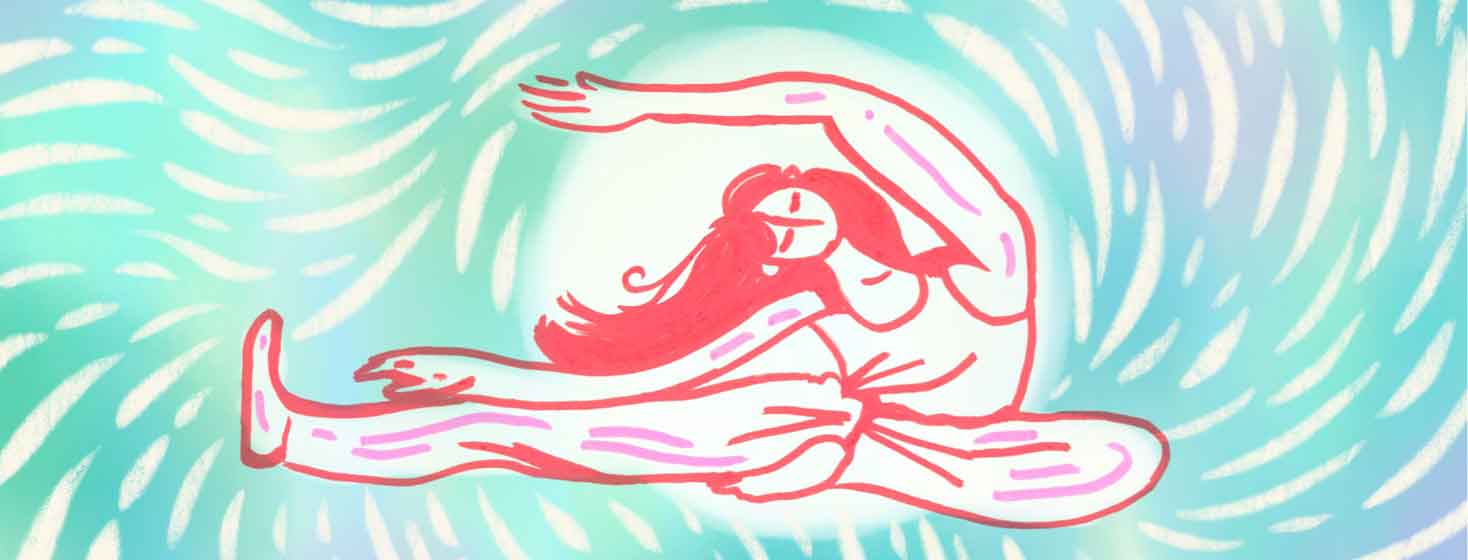Rectal Pain and Endometriosis: Here’s What Eased My Symptoms
My bowel movements usually don't hurt on the way to my rectum. It's the pain after I poop that can be an issue.
Sorry for these graphic details, but these cramps feel like a charley horse in my butt. The pain usually sends shockwaves from my rectum throughout my pelvic floor and makes me feel like I'm going to throw up.
These post-spasm aches can last anywhere from a few seconds to 30 minutes or longer.
The same pain can happen after an orgasm, or at least it used to. While I can’t give medical advice or diagnose the cause of your rectal pain, I can offer some tips about what helped ease my symptoms.
Rectal pain and endometriosis
Your rectum is at the end of your large intestines. It stores your waste and sends a signal to your brain when it's time for a bowel movement.
Pelvic floor muscles fire up when you push your poop out. The muscles around your vagina and anus also contract when you have an orgasm.
It's well-known that people with endometriosis commonly have tight pelvic floor muscles. This increase in muscle tone can cause chronic pain or spasms, especially when you do things like have sex or a bowel movement.1
Some spots in and around my pelvic floor hurt when they're pressed. Other areas only cause pain when my muscles contract.
My doctor didn't give me a diagnosis other than pelvic floor tightness, but I found some medical terms for what might be happening.
Potential causes of rectal pain
Levator ani syndrome (LAS)
Your levator ani muscles hold up most of your pelvic floor and wrap around your vagina and rectum. You use them when you pee, poop, and have sex.2
LAS is when these muscles spasm when they shouldn't. Your doctor may think about LAS if you don't have another physical cause for your symptoms, such as hemorrhoids or inflammatory bowel disease (IBD).2
Symptoms of LAS include:2
- Chronic rectal pain or aches that come and go
- Rectal pain that lasts 20 min or longer
- Muscle tenderness around your rectum
Research shows that endometriosis can grow on or inside your levator ani muscle. But my doctor didn't tell me if this was what was happening to me.2
Proctalgia
This is a type of LAS, and it refers to pain in your rectum and anus that comes and goes. There isn't a single cause for proctalgia, but it can cause shooting pain that lasts for a few seconds or up to 30 minutes.3
A condition called proctalgia fugax may cause muscle spasms that are so painful they wake you up at night.
The triggers for proctalgia fugax sound very familiar and include:3
- Stress
- Sex
- Having your period
- Constipation
Prevention of rectal pain
Pelvic floor therapy
According to many doctors, my resting body is actually pretty tense and sore. But I've worked with a handful of physical therapists over the years to learn how to relax all of my muscles.
I've also learned how to intentionally release my pelvic floor. When I started doing these exercises at home, my recurrent rectal pain stopped pretty quickly. But it still happens sometimes, like when I’m really stressed, or I forget to do my relaxation exercises.
Mindfulness
This term gets thrown around a lot and often gets an eye roll. But one of my pelvic floor therapists taught me the importance of paying attention to my body, and it made a huge difference when I actually started doing it.
Now I can tell when my body tenses up. For instance, my shoulders crept up towards my ears while I was writing this paragraph. My pelvic floor muscles also tightened. That's why I take time to relax every 30 minutes or so.
Good bowel habits
Even before pelvic floor therapy, I got less rectal pain when my poop was easier to pass. That's why I make sure to eat lots of low-FODMAP vegetables, drink enough water, and get plenty of movement throughout the day.
It also helps that I'm vegan, which makes it easy to load up on fiber-filled foods.
When to talk to your doctor about rectal pain
Pelvic floor tightness isn't the only cause of rectal pain. You'll want your doctor to rule out any other medical issues.
That might include bowel endometriosis or inflammatory bowel diseases like Crohn's disease or ulcerative colitis. They can also check for any physical problems like polyps or hemorrhoids.
But if you haven't tried it before, pelvic floor therapy might be worth a shot. Ask your doctor to refer you to a physical therapist who works with people with endometriosis or chronic pelvic pain. They should be able to let you know what treatment is best for you.

Join the conversation